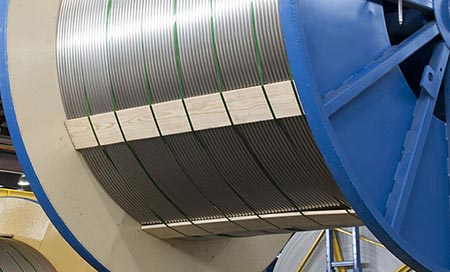What are the different types of coiled tubing?
Coiled tubing comes in various types, each designed for specific applications and environments. Here are some common types:
Continuous Coiled Tubing: This is the standard type of coiled tubing used for various operations like cleanouts, nitrogen kick-offs, and stimulation treatments. It's a continuous, seamless pipe wound onto a reel.
High Strength Coiled Tubing: This type is engineered with enhanced strength properties, allowing it to withstand higher pressures and harsher downhole conditions. It's often used in demanding operations such as deep drilling or in wells with high-pressure environments.
Large Diameter Coiled Tubing: Sometimes referred to as "big coil," this type has a larger diameter compared to standard coiled tubing. It's used for operations requiring higher flow rates or for applications where larger tools or equipment need to be deployed.

Composite Coiled Tubing: Composite tubing combines materials like carbon fiber or fiberglass with resin to create a lightweight yet strong tubing option. It's often used in highly corrosive environments or where weight constraints are critical, such as offshore operations.
Insulated Coiled Tubing: Insulated tubing has an added layer of insulation around the tubing to maintain fluid temperature during operations. It's commonly used in applications where temperature control is crucial, such as thermal stimulation or logging in extreme environments.
Electrical Coiled Tubing: This type of tubing incorporates electrical conductors within the tubing wall, allowing for the transmission of power or data downhole. It's used in applications such as electric heating for wellbore interventions or for deploying downhole sensors and instrumentation.
Specialty Coiled Tubing: There are various specialty coatings and treatments available for coiled tubing to enhance its performance in specific applications. For example, corrosion-resistant coatings, abrasion-resistant coatings, or coatings to improve drag reduction in highly deviated wells.
Each type of coiled tubing offers distinct advantages depending on the requirements of the operation, such as pressure, temperature, depth, and environmental factors.
Previous: >> Factors influencing stainless steel tubing coil price Next: >> Excellence in Stainless Steel Tubing Solutions: Zhstainlesspipe's Quality and Versatility






